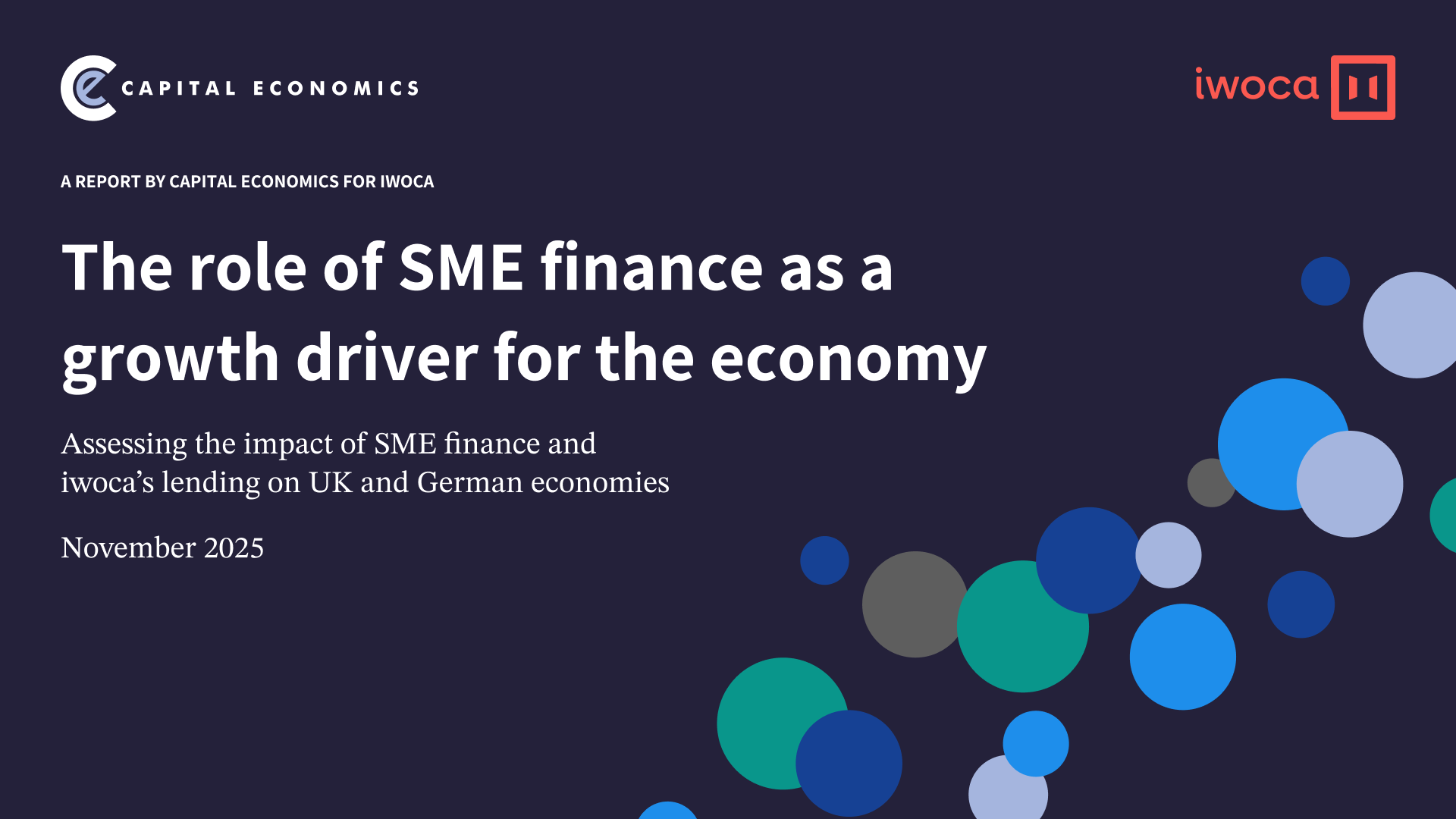Scaling up people-friendly fintech
5
min read
Scaling up people-friendly fintech
January 17, 2020






Seema Desai was born in Portsmouth and grew up in Surrey. She studied Natural Sciences at Cambridge before starting her career in financial services in Accenture’s strategy division. She worked with HBOS, then helped GSMA develop mobile financial platforms for emerging markets before working for peer-to-peer investments at Zopa. She is now the Chief Operating Officer at iwoca. A keen mountain climber, Seema lives in East London.
So how did you start your career in financial services?
I initially did an internship at Accenture and then worked in their strategy division, mainly working within financial services in banking and insurance. I was curious about financial products, how savings products work, and how to give more people the opportunity to save and to generate higher returns. That was something I learned about when I was at HBOS, which has an enormous savings book for the country. They were a bit of a disruptor in the space at the time; a big bank that acted like a small bank.
Mobile technology was about to make a big impact, and I could see that there was a bigger need from customers for financial services in emerging markets, where many customers had no bank account at all, but did have mobile phone access. My next job at GSMA, the trade association for the mobile industry, helped mobile network operators identify the opportunity for mobile money, and launch and scale their services in emerging markets. I was there for seven years, working on ways to use technology to provide financial services to customers in Africa, Southeast Asia, and Latin America.
When did you begin working in UK fintech?
I became increasingly aware of the growing fintech scene here in London, and the financial needs that weren't being met in the best way here in the UK. That led to a job with Zopa on their investment products. They were one of the earliest London fintech firms, and I was fascinated by the peer-to-peer platform.
There's a huge need for people to borrow money in a way that is clear and transparent to them. The lending market can be a bit scary, much harder than the savings market for consumers. So I'm really privileged to be working in a company like iwoca that really does help to make lending more accessible to customers, and clear and simple, and meeting a customer's needs in the best way possible.
What were your immediate objectives when you joined iwoca?
There were around 120 people in the team — at that stage of growth, it’s hard to know everyone's name, and you need a structure in place. You need clarity over who does what, and how to communicate. People have to know how decisions are being made, without it constraining the business or having process for process’ sake.
You want people to be motivated, and coached, and helped to develop, so I was keen to introduce the principles of ‘radical candor’. The phrase comes from Kim Scott's book about challenging directly. It’s important that people hear tough feedback, but the only way it is really effective is if you also care personally. So you keep the working environment professional, but make sure that it is human. Having transparency is the key to a healthy and productive working relationship for everyone.
What would you say the core tenet of an effective people strategy is?
I want to create a community of exceptional high performers who love being at iwoca, and are able to do amazing work. They should be working hard, but also working smart, and taking a lot of enjoyment from what they do here. However long people stay at iwoca, I want them to recognise themselves as better, more skilled, happier people when they leave, and that they have grown personally through their iwoca experience.
Creating that kind of culture relies on finding the right people in the first place — so what is iwoca's approach to hiring?
We have a rigorous interview process and a high bar. We are very selective, and we take responsibility for helping recruits to do the best job that they possibly can and see that they are fulfilled in doing it. It means we don’t need to put undue pressure on people by placing them in roles they’re not suited to, or in roles that we feel are peripheral. It also means giving them all the help they need when they arrive to get up and running. Rather than bringing people in quickly, we’re now much better at considering a number of candidates to get exactly the right person.
And then there’s inclusion. What kind of steps are iwoca taking in terms of the hiring process?
We look at both male and female candidates for every role, creating a diverse pool during the interview stage. Every team now has a mix of men and women, and once you have the first woman in there, it helps attract other women to that team. We’re now at around 30% female, up from 25% when I joined, so it’s changing; it’s more of a supply problem in tech. There just aren’t enough female developers out there right now.
So how do we start to solve this problem in the industry?
We are doing things like working with Next Tech Girls to help solve some of the supply problem, helping school-age girls make decisions about what subjects to study and which university course to do. We show them that roles in companies like ours are absolutely accessible for them.
This involves us providing work experience for a group of girls over four days, who shadow different teams, and get to work on a tech project themselves, which involves things like coding. It’s a long-term strategy.
Let’s talk about your new role, COO. What specifically for SMEs will you be doing?
We’re offering new products to our customers to serve more of their needs, so it’s about making sure that we’re properly geared up to do that operationally. We also have lots more automation of our current manual processes in the pipeline — part of my role is making sure those drive efficiency gains without compromising the quality of our customer experience.
We are trying to optimise on processes and activity, as well as managing our headcount and recruitment. So we are getting the best people to do the best work in the most efficient way. It’s nice to be able to marry those together.
What is your vision of an iwoca utopia?
Well, I think customers will be able to access finance when they need it, where they need it, and they can access that affordably. And it's an incredibly slick process with very limited human interaction, but the human interaction is absolutely seamless and precise.
As we grow, there are two of our values that I really hope we never lose. One is our constant curiosity. Everybody should question what we are doing and seek ways of doing things better. The other value is humility. I think iwoca is differentiated from other companies in terms of how humble the team is. I love learning people's personal stories and realising they’re doing incredible things — they are writing plays in their spare time, or they are climbers, or GB athletes. People aren't boasting about these things at all. They are just getting on.
Finally, we’re keen to hear about your passion for climbing — tell us what you love about it.
It's where I learn to manage my fear and find my focus. The only thing you can think about is finishing the climb, and how you finish it. That is an absolute, pure focus, using your mind and your body in harmony to get to the top. You are never sure that you can do it until you've done it. And that is a wonderful feeling.
The climbs you remember are where you were really at your limit. For me, it was climbing Dent du Géant in the Alps. It’s this long, tall pinnacle, just shy of 4,000 meters. The climb is not particularly hard, but it's a really long day. At the top I saw this amazing 360 of the beautifully snowy, icy Mont Blanc range, under a blue sunny sky — you couldn’t hang out up there for more than a minute, but the beauty and sense of achievement was amazing.


How to use payroll loans for small businesses

Business Loans comparison: High Street Banks vs. Alternative Lenders
Comparing the pros and cons of getting a business loan from traditional lenders and alternative finance providers, including how they differ in application processes, speed of funding, rates and flexibility.

Working capital ratio
Discussing the importance of calculating your company’s working capital ratio, what it represents and how to improve the ratio.




